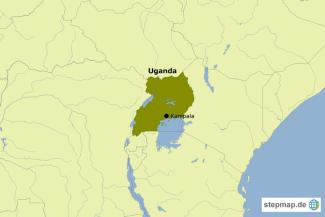Infrastructure
Bumpy road to development

Reasons include graft, slow government action concerning procurement and construction, and also climate change. Cutting off rural areas, unusually heavy rains have begun to wash away bridges and roads.
Today, a one-day journey from the northern Karamoja region to Kampala, the capital city, may take travellers three days or more because in the rainy season when many roads cannot be passed. Farmers and traders pay high price for this state of affairs: They count serious losses in perishable products.
Uganda’s health system is also affected. Clothilda Mirembe, a health worker in Central Uganda, says: “If the roads to rural health centers were better, many lives would be saved.” For example, emergency ambulances cannot reach villages to rescue pregnant women in labour. “Family members have to use a bicycle or wheelbarrow to get the pregnant woman to the waiting ambulance, putting the life of her unborn baby at risk – and hers too,” says Mirembe. To common Ugandan citizens, good roads mean saving lives and access to market.
Some progress is being made however. A road linking Uganda with South Sudan is due to be completed, in addition to many other rural roads in the countryside. In the recently passed budget, infrastructure took the lion share of 13 %. Defending this unusually huge proportion, President Yoweri Museveni said: “When you talk about agriculture, you must not forget the roads.” Foreign investors, moreover, appreciate transport infrastructure too.
Mathias Kasaija, the minister of finance, agrees with farmers, traders and health workers that Uganda needs better roads: “That is why this year’s budget is looking at boosting growth through infrastructural development.”
The construction of good roads across Uganda will boost the economy, create additional job opportunities and improve market accesses and health for rural people. As a landlocked member state of the East African community, moreover, a functioning road network will improve trade relations with neighboring countries and improve Ugandan’s access to sea ports.
Gloria Laker Aciro is a former war reporter who now heads the Peace Journalism Foundation of East Africa. She lives in Kampala, Uganda.
Email: glorialaker@gmail.com
Twitter: @GloriaLaker







